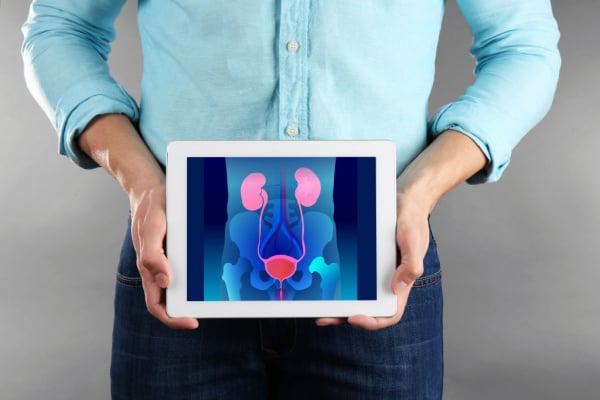More than half of all men over the age of 50 suffer from symptoms of an enlarged prostate.
By TPS
The Israeli startup company NINA Medical has developed the first technology of its kind in the world for the non-invasive treatment of an enlarged prostate.
Benign Prostatic Hyperplasia, or BPH, is part of the normal aging process in men. More than 50 percent of men over the age of 50, and more than 70% of men over 60, suffer from symptoms associated with BPH, including difficulties with urinating, and multiple wake-ups at night.
Although BPH is primarily classified as a quality-of-life issue, it is also a risk factor for complications including recurrent infections, bladder damage, and chronic kidney failure.
Current treatment options include medications, minimally invasive surgical treatments, and full surgery. Medications have side effects, and their efficacy degrades with time. Minimally invasive treatment options are considered emerging technologies, but they are all transurethral, involving cutting away a section of the prostate.
As a result, most men choose to avoid or postpone conventional medical care. Many of them are experiencing a significant degradation in quality of life.
In the US, more than 30 million men suffer from BPH, and about 18 million of them do not use any conventional treatment.
Minimally invasive solutions are selected by less than 1% of the market, annually.
However, NINA Medical has developed an approach that accesses the prostate from the perineum, in a completely non-invasive manner.
The Nazareth-based company is developing the LOTUS-1 diagnostic-therapeutic system, for the urologist’s office.
Designed as a treatment chair for a patient in a natural sitting position, the LOTUS-1 employs focused ultrasound for therapy by selective thermal ablation of prostate tissue, combined with diagnostic ultrasound for imaging. Both approach the prostate from the perineum, non-invasively.
A new ultrasound imaging script was also invented by the company, exposing the profile of the therapeutic beam inside the body. This provides real-time feedback about the actual location of the focal point within the body before and during the ablation process, for better safety and efficacy.
NINA Medical defines a new category in the market – the non-invasive treatment, addressing a market share of more than 60% of men who suffer from an enlarged prostate.
